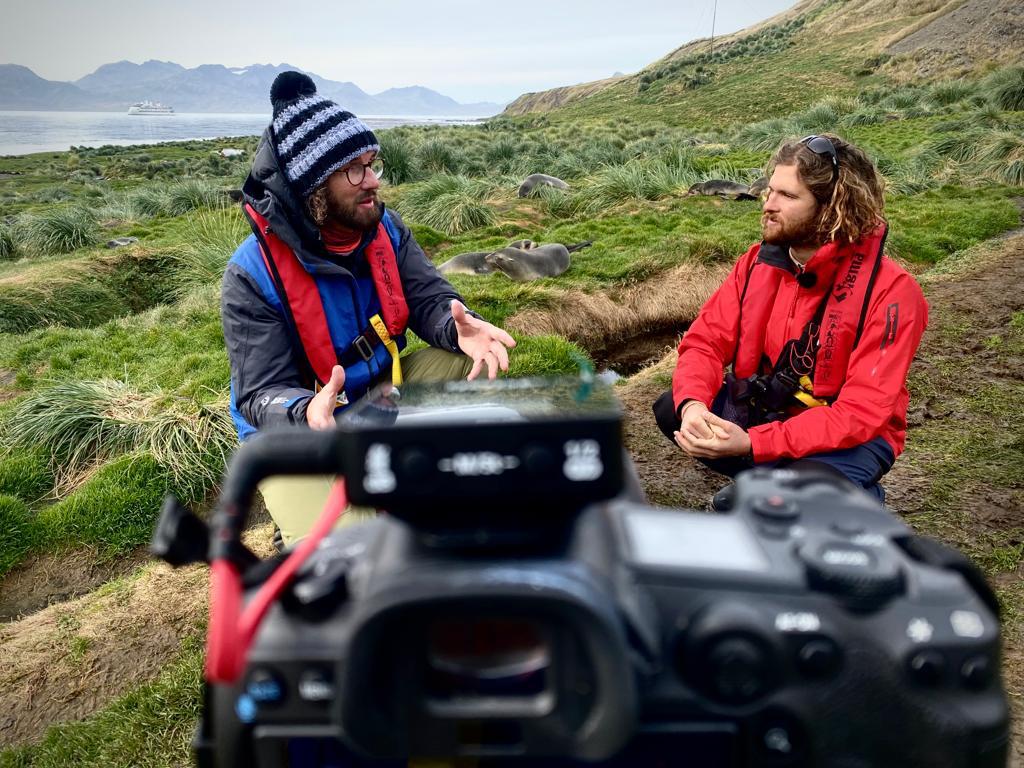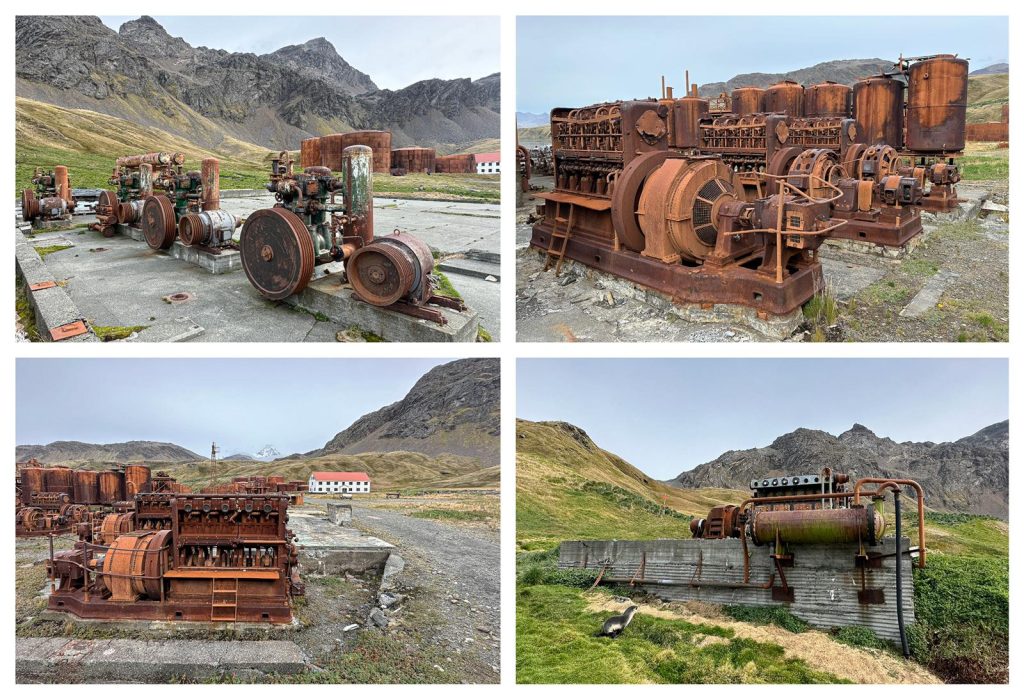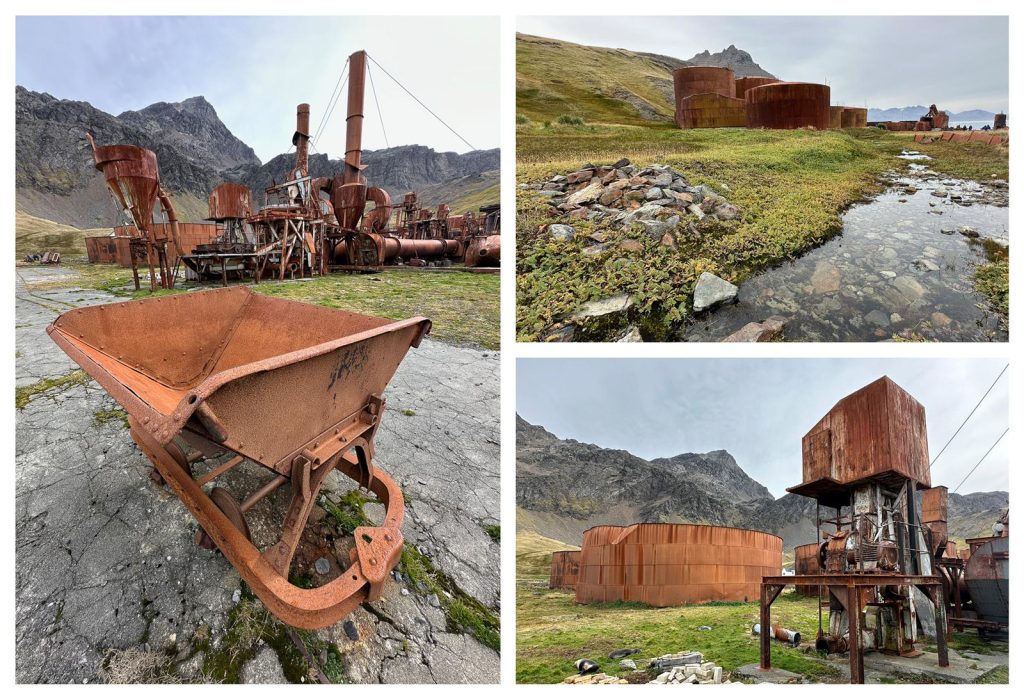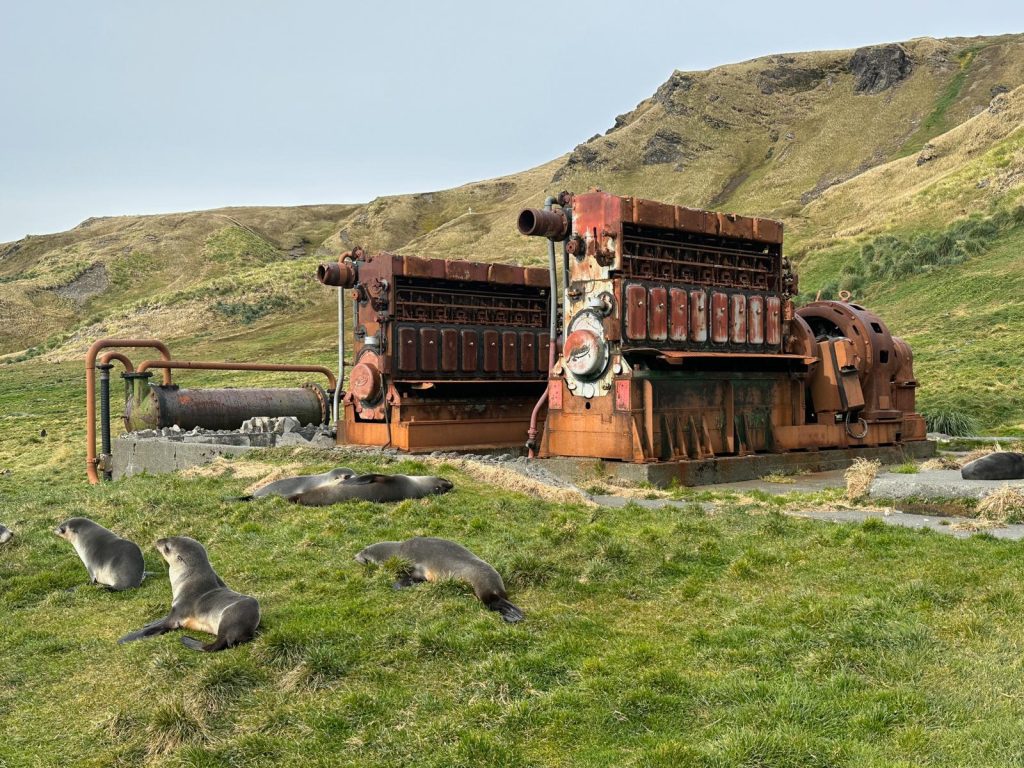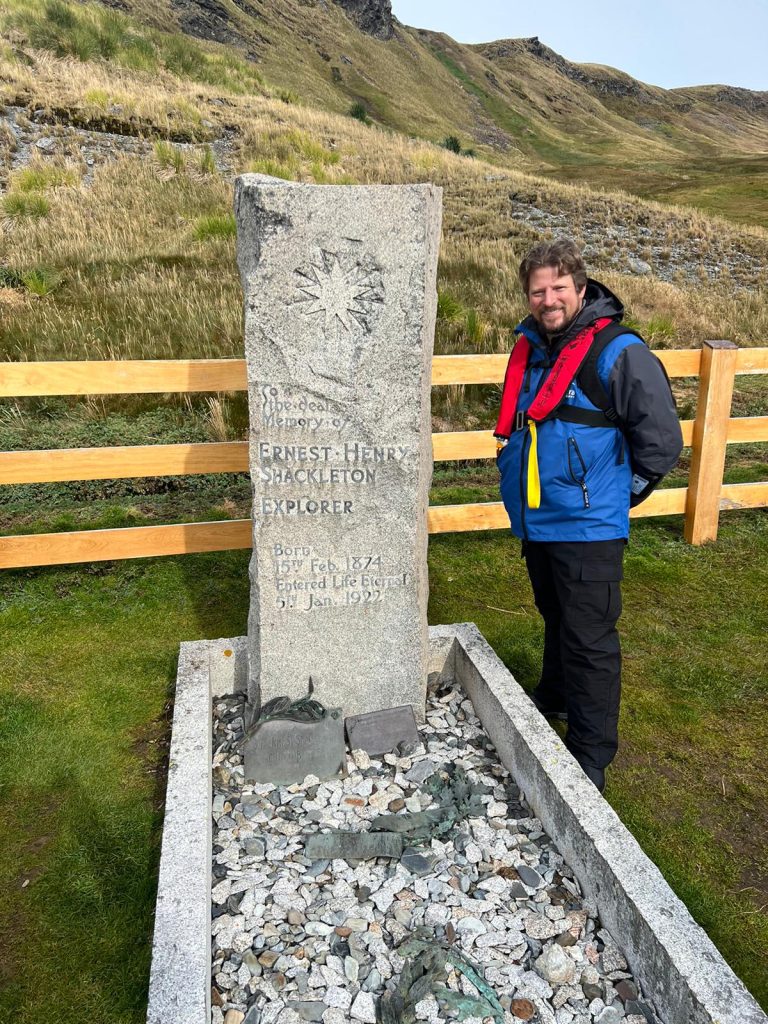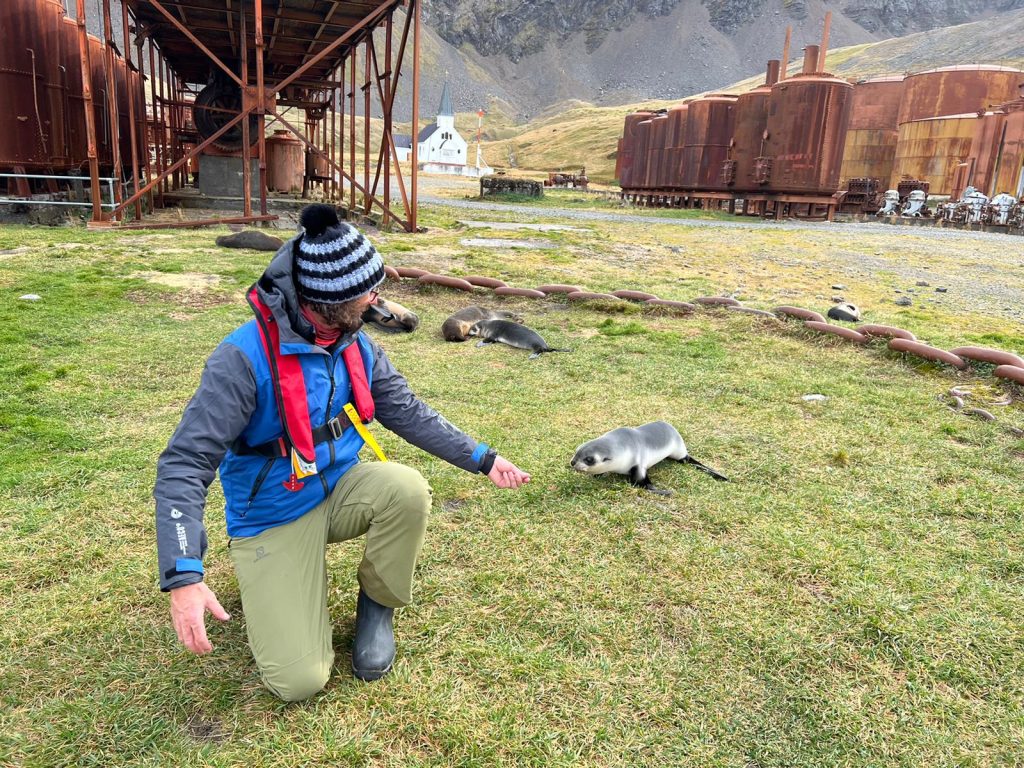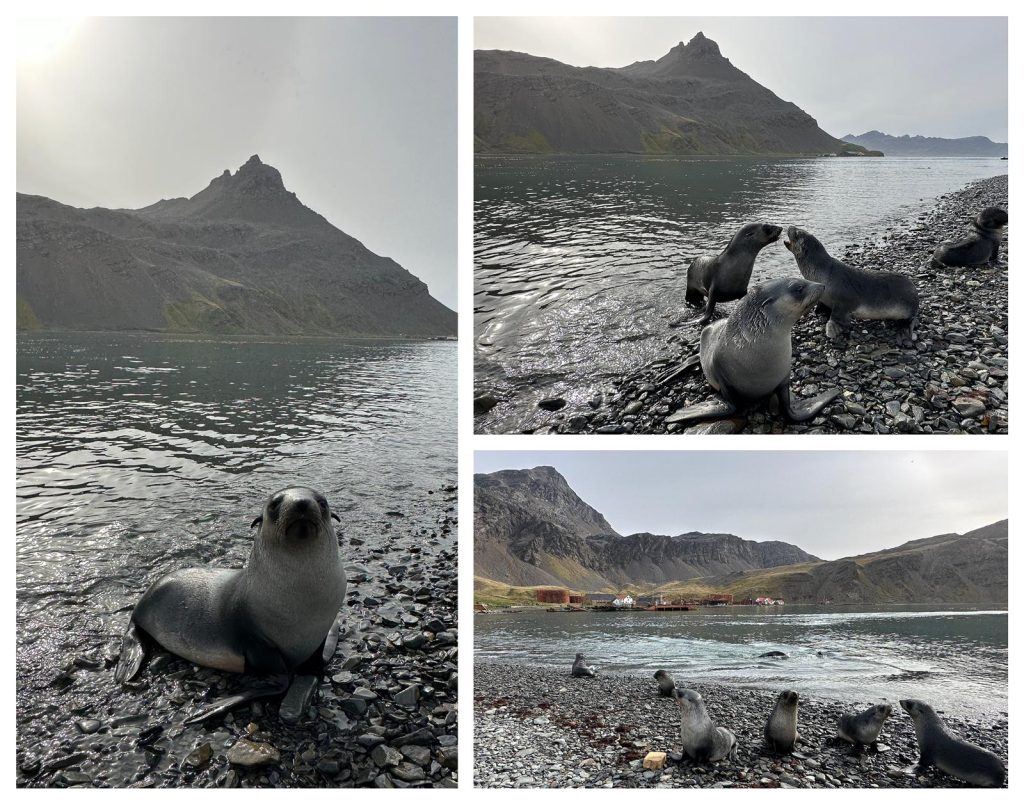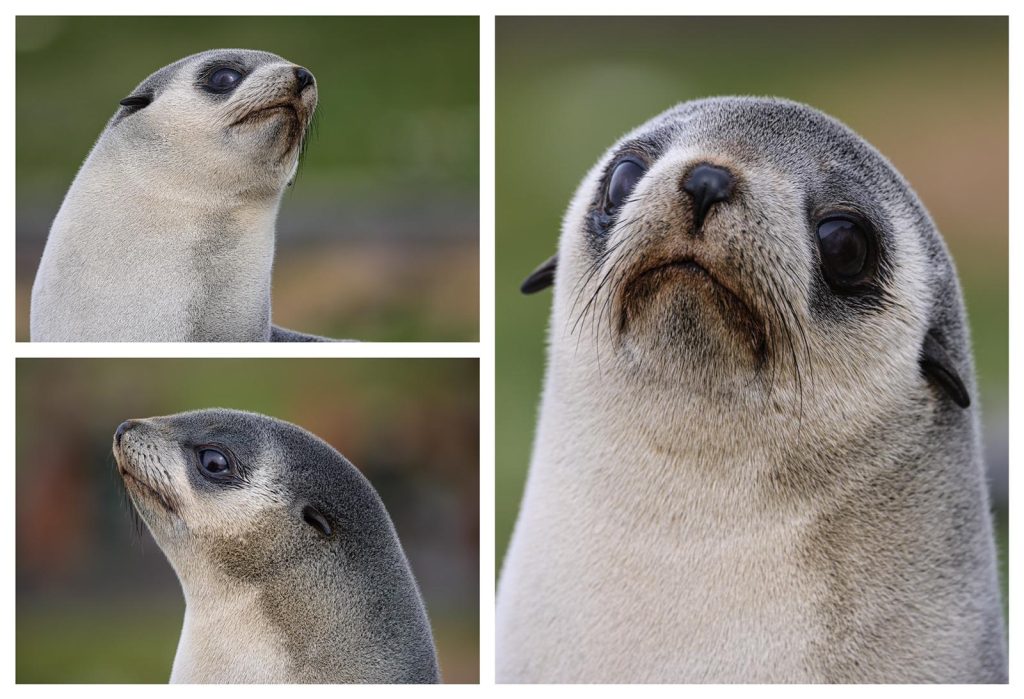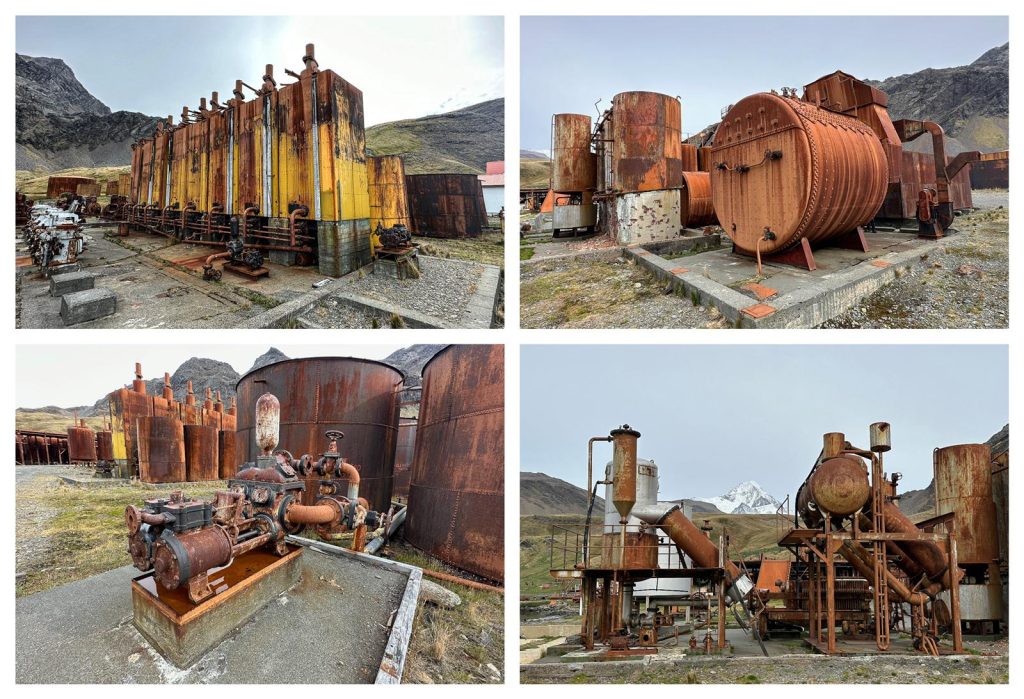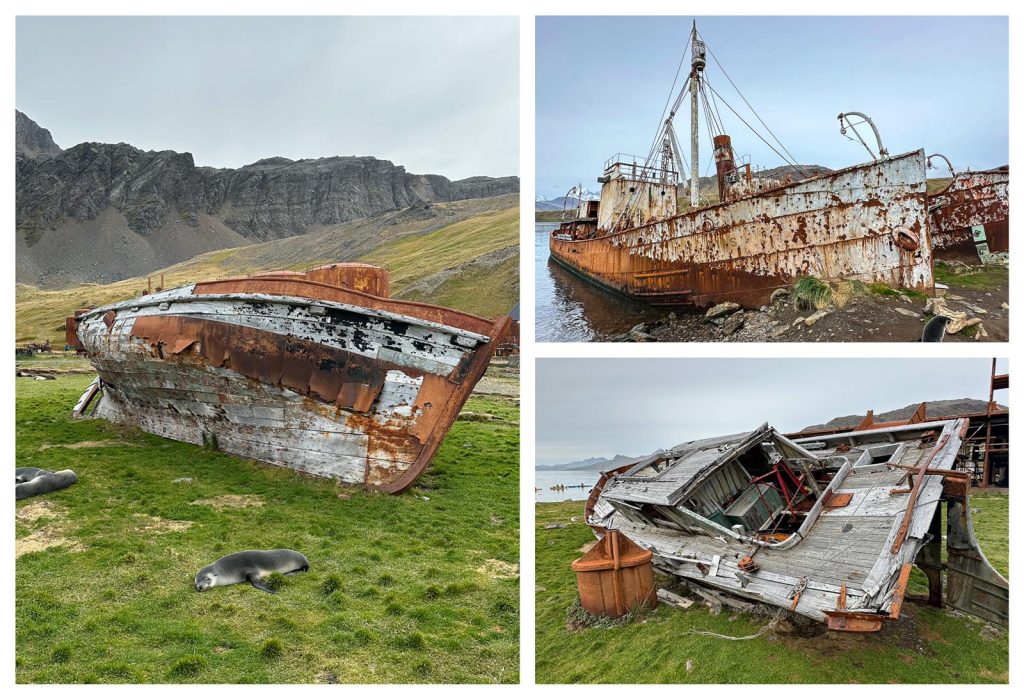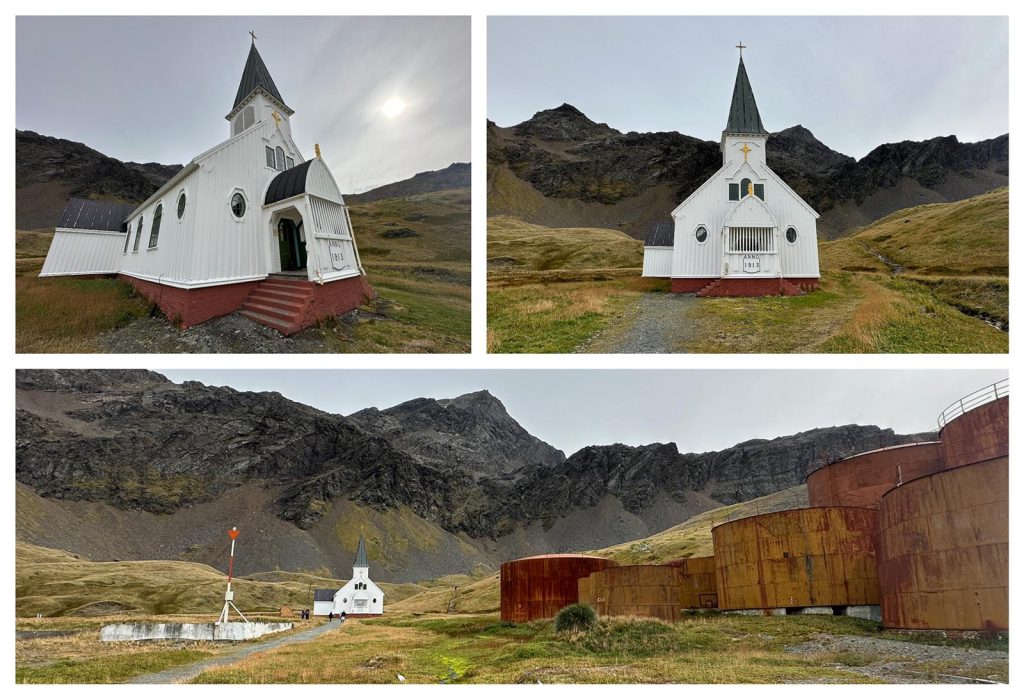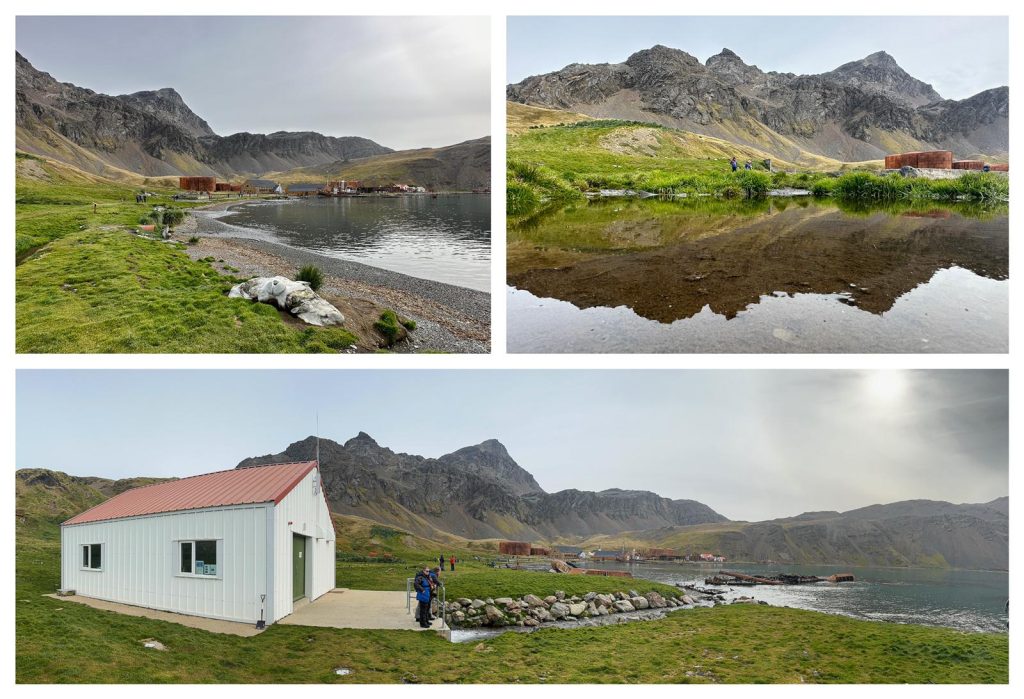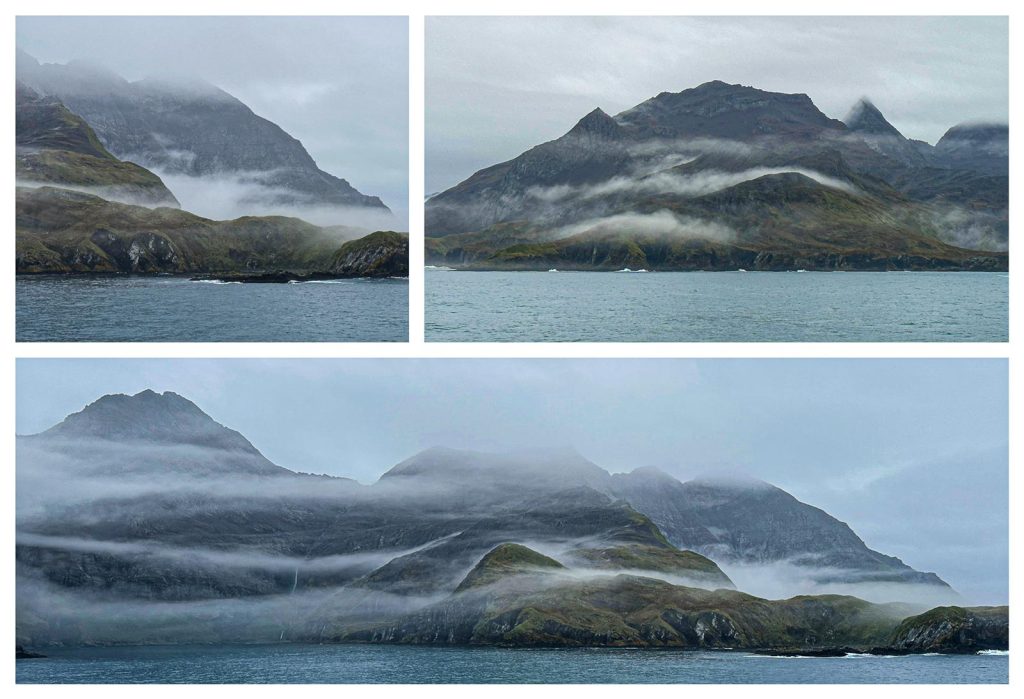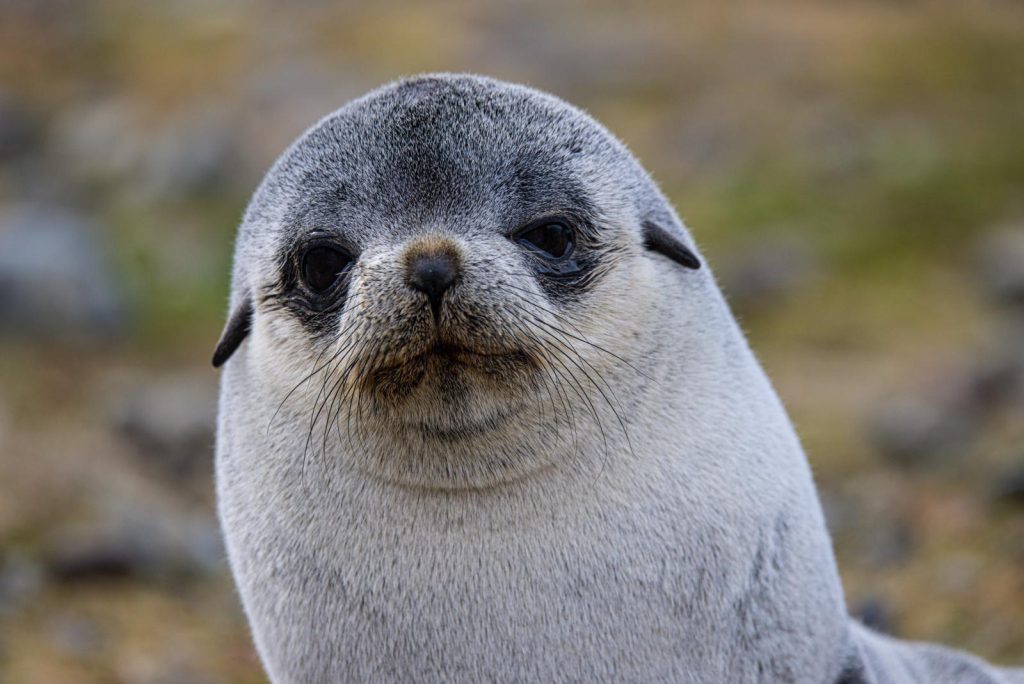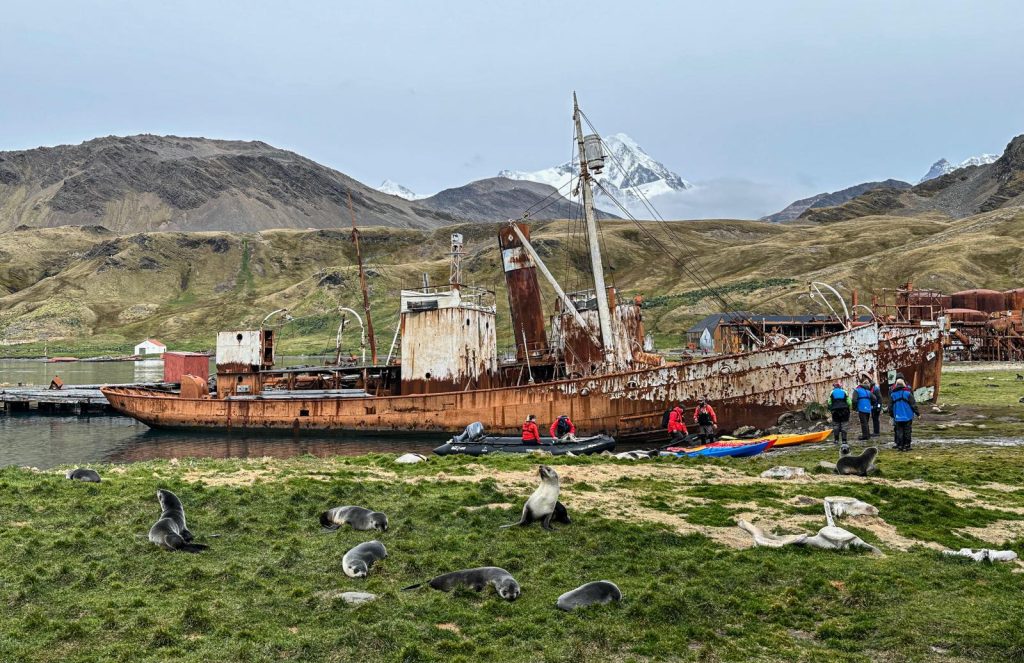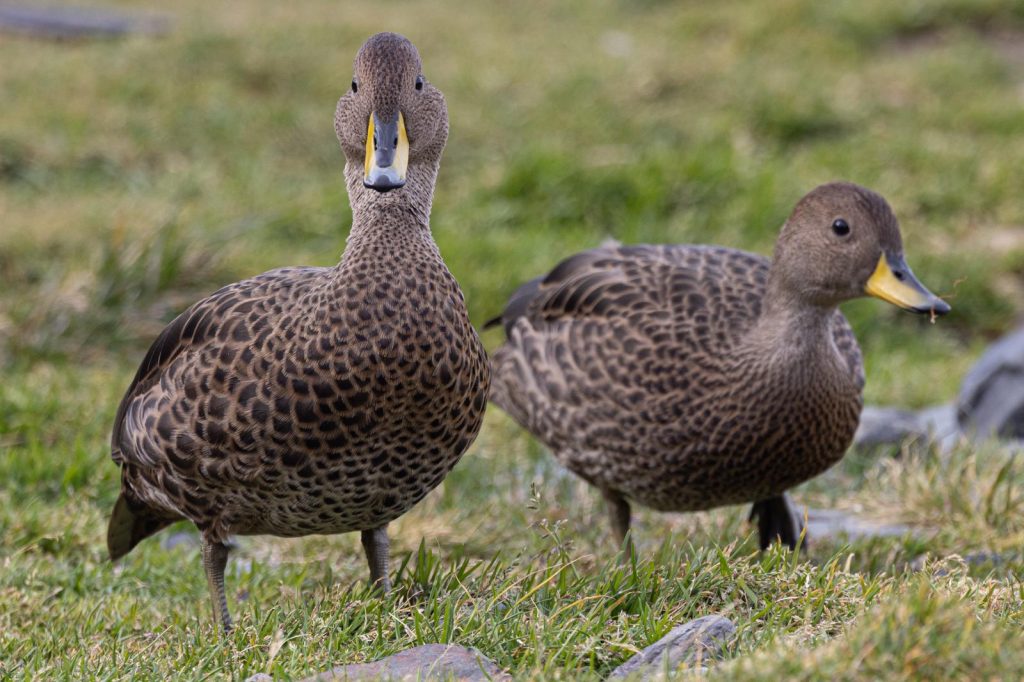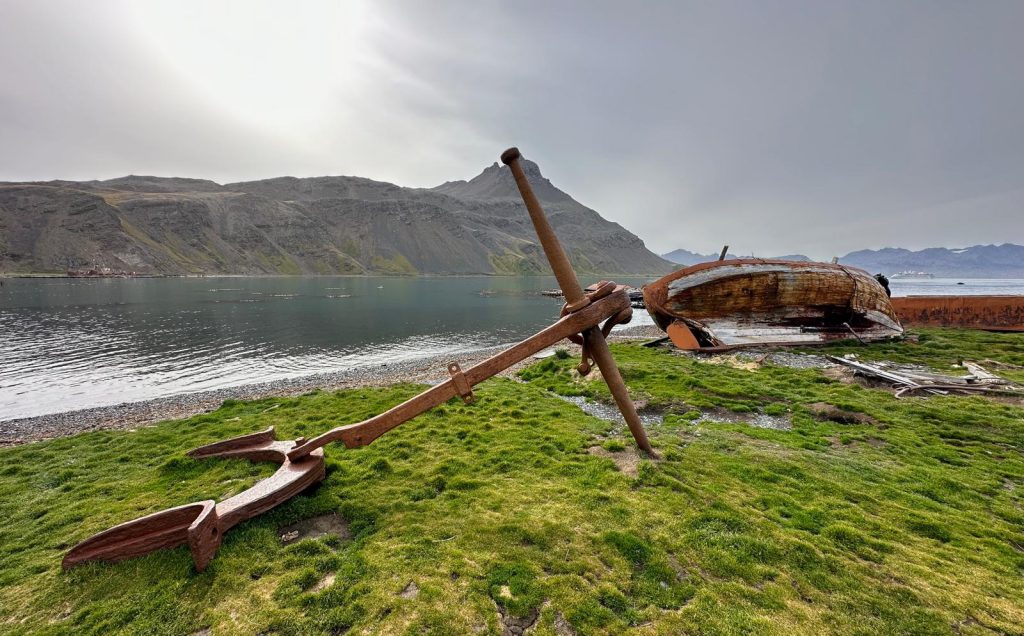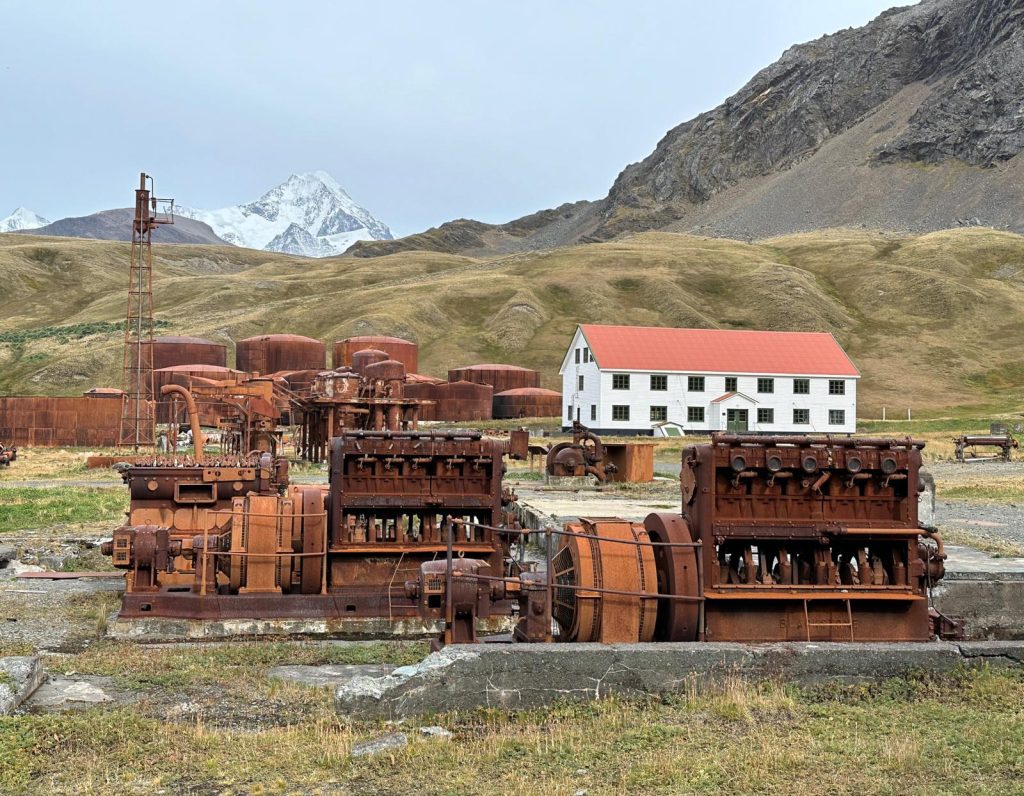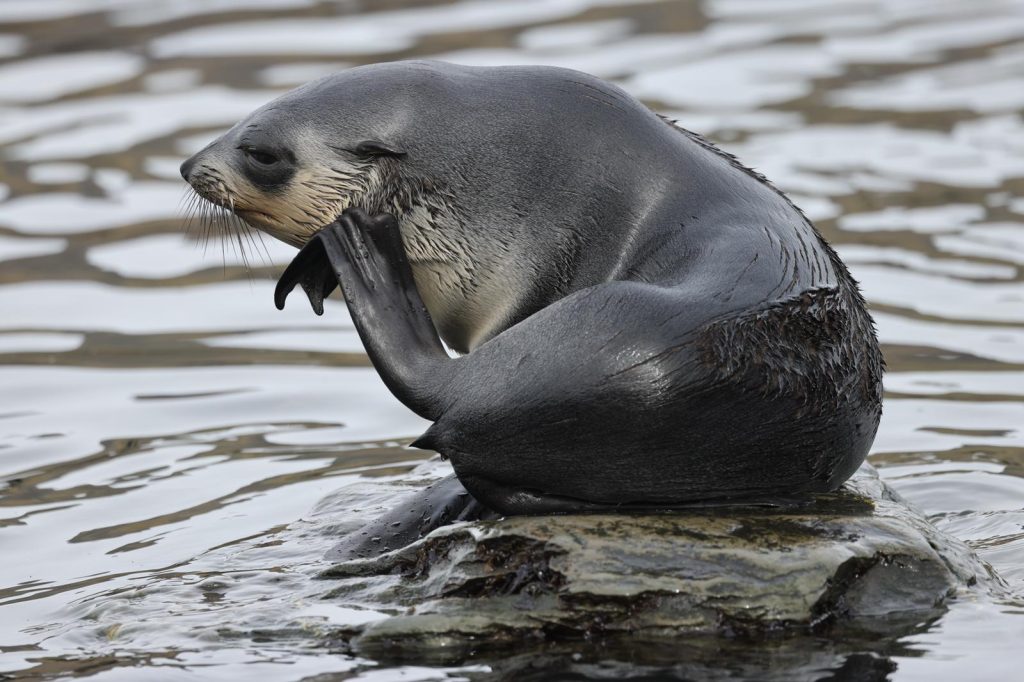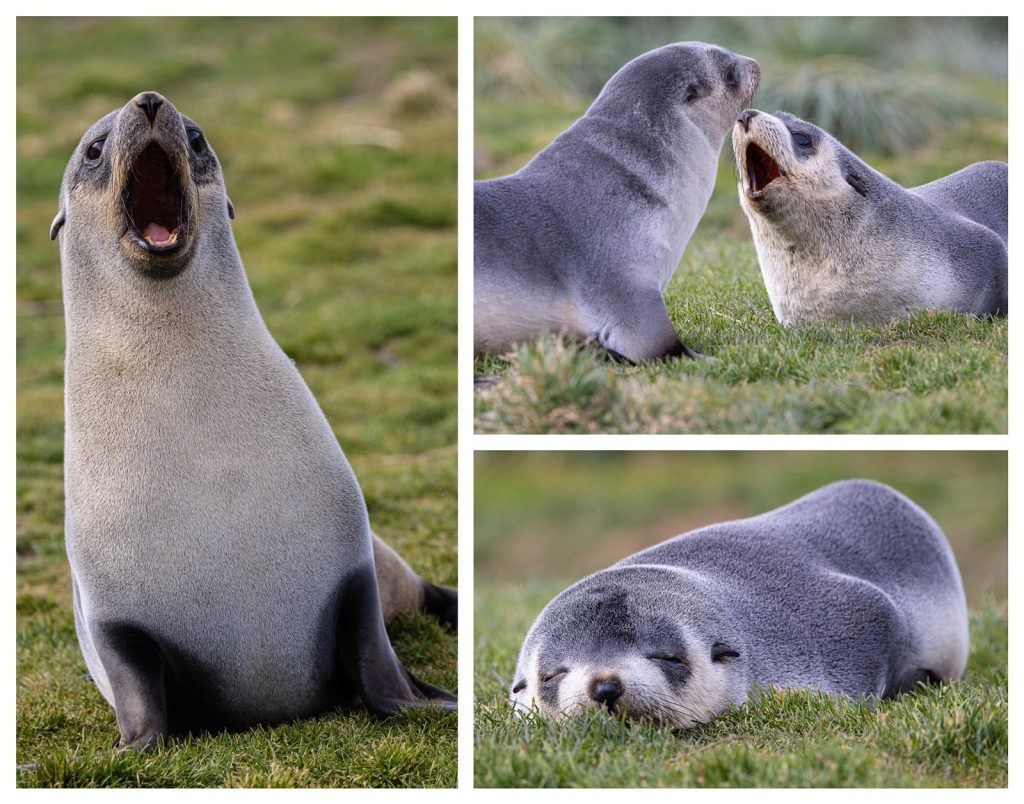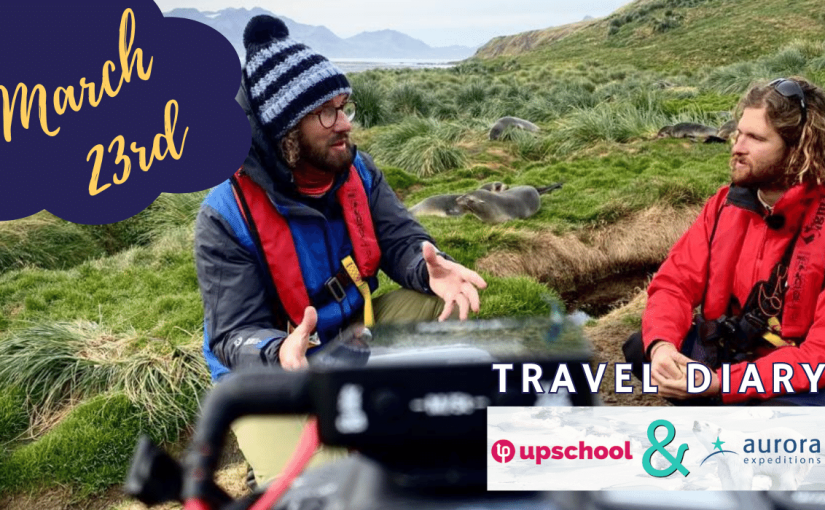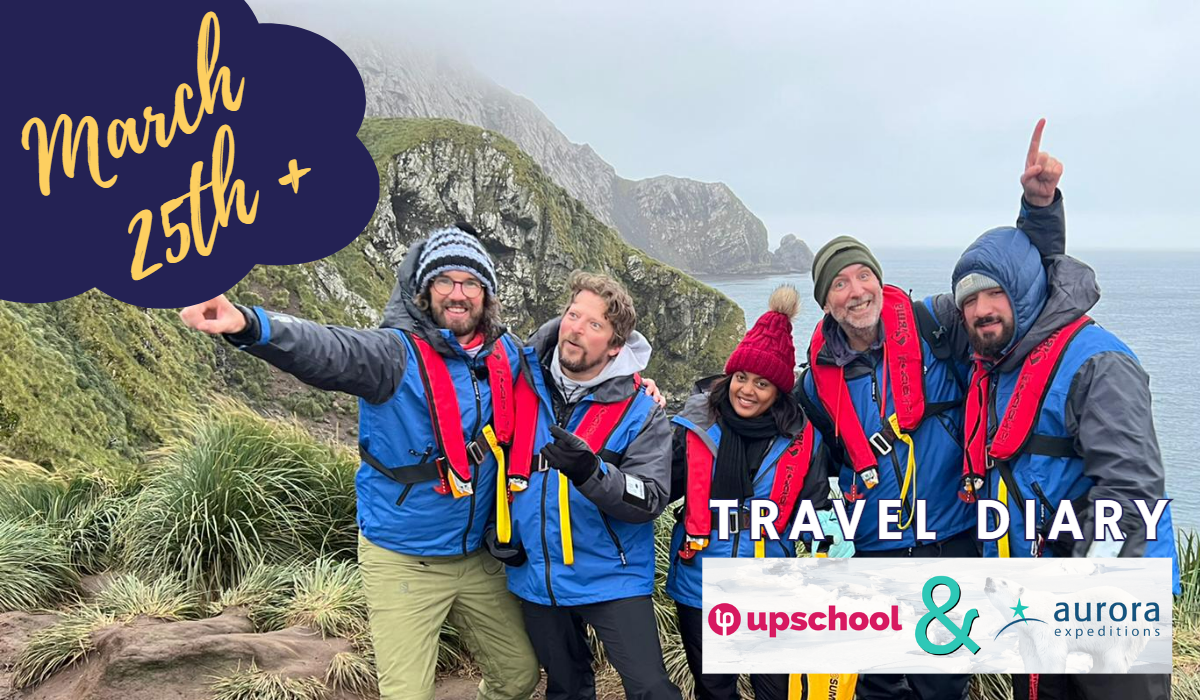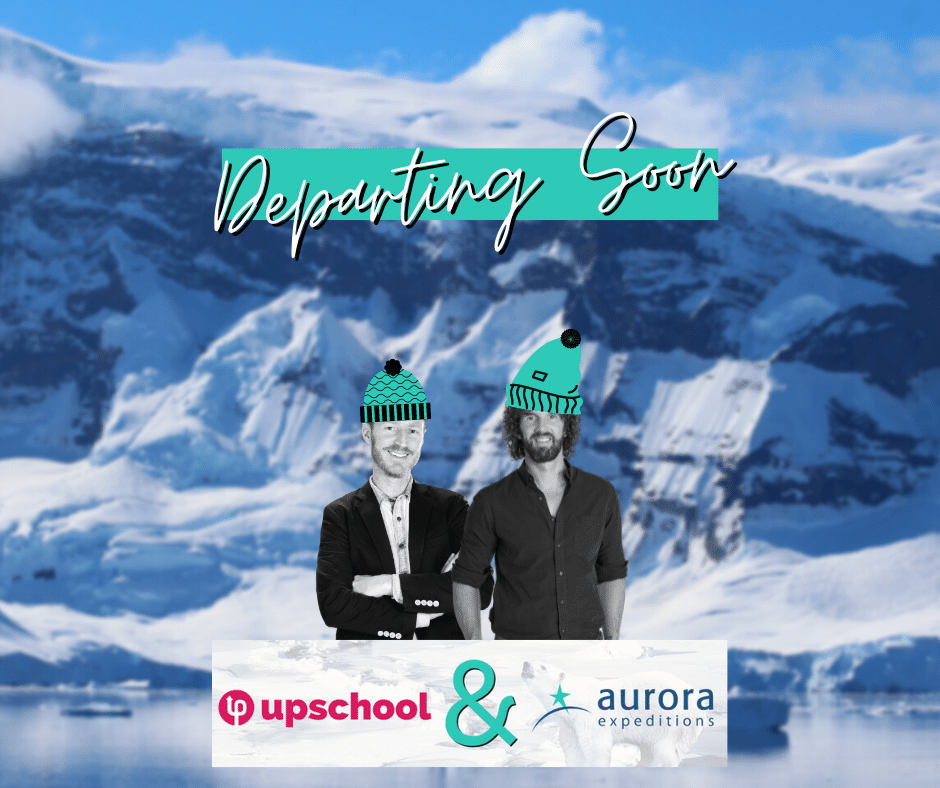Position at 0700 on 23rd March
Latitude: 54°17’ S
Longitude: 036°28’ W
Course: 242°
Speed: 7.7 kts
Barometer: 1012 hpa
Air temp: 0° C
Sea temp: 1.5° C
Wind Speed: SSE 7
Penguin count: countless!
Whale count: also countless!!
In the morning we wake up excited to explore the crisp shoreline of South Georgia and to respectfully observe the colony of King penguins that roam about. Unfortunately, we open the curtains to a turn in the weather – grey skies and ominous clouds greet us. Over the tannoy we hear the sad news – we won’t be able to visit the King penguins! The seas are too choppy, making it unsafe to disembark and unload ourselves into the Zodiac. Safety is a priority so we are all very understanding about the situation and the Captain steers us towards a different area – Grytviken bay, which is sheltered from the weather, where we are able to head to shore for a different experience.
Grytviken Bay was established in the early 1900s by Captain Carl Anton Larsen and was, sadly, the site of the largest baleen whale massacres of the 20th century. Now, the whaling station acts as a living museum and the whole bay hosts hundreds of Antarctic fur seal pups, elephant seals and a variety of birds.
On shore, we see the ancient relics strewed across the land, rusted by the turning of time. These are the remnants of Larsen’s dismantled house and machinery. There is beauty in these ancient artefacts and we utilise our surroundings to tell more of the story of the destructive role that whaling has played in the ecosystems of the great Southern Ocean, with the amazing Bia, and another recorded lesson on nurturing seal pups with Pat, a marine biologist.
Further along is a small cemetery, where the body of one of the most famous explorers on Earth resides – Ernest Shackleton. We pay our respects and have a moment’s silence while we listen to Jeff give a speech about Shackleton’s life.
The weather begins to turn again and so we head back to the ship and to the warmth of the lecture rooms where we learn about the history of diet and scurvy in past expeditions from Linda, the Aurora Expeditions medic on board.
As high winds and strong gusts approached in the north Scotia Sea, it was time to batten down the hatches and find shelter for the night in a secluded cove before heading further north in the morning.
See you tomorrow and thanks for reading!
Tanya, Gavin, Graeme, Jordan & Matt
